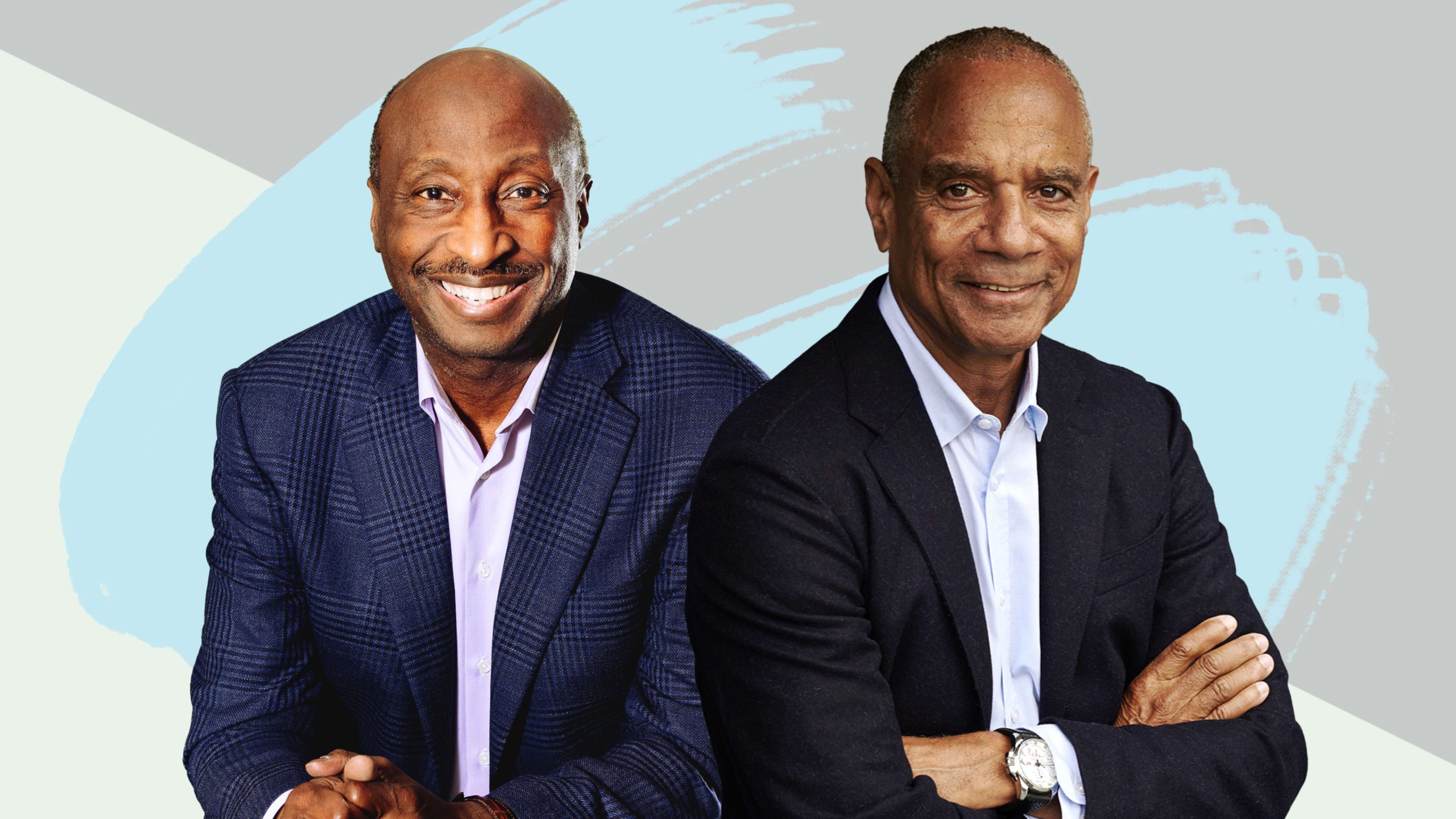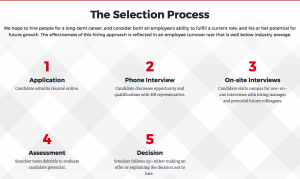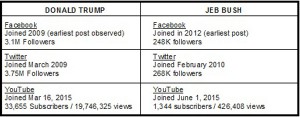The former CEOs of Merck and American Express on why executives have gone quiet on social issues
Ken Chenault and Ken Frazier talk about the campus protests and the downfall of terms like DEI on the latest episode of the ‘Rapid Response’ podcast.
As protests continue to engulf college campuses across the U.S., former Merck CEO Ken Frazier and former American Express CEO Ken Chenault see the unrest as a microcosm of broader society, and a crucial learning moment for business leaders everywhere. Frazier and Chenault share their unfiltered advice about corporate DEI and ESG efforts, what people misunderstand about affirmative action, and how to lead with courage in 2024.
This is an abridged transcript of an interview from Rapid Response, hosted by the former editor-in-chief of Fast Company Bob Safian. From the team behind the Masters of Scale podcast, Rapid Response features candid conversations with today’s top business leaders navigating real-time challenges. Subscribe to Rapid Response wherever you get your podcasts to ensure you never miss an episode.
Why CEOs have gone quiet on social issues
During the pandemic and coming out of it, a lot of businesses took public stands on things. But recently, it seems like suddenly CEOs don’t want to talk about anything. Do you have a sense about why that change happened?
Ken Frazier: I think CEOs have seen enough examples of companies that have been punished for speaking out. I think it’s important for all of us as business leaders to understand that we are very divided people right now. But at the same time, our businesses depend on certain bedrock principles of our democracy and our free market, in order for us to continue to be successful over the long term.
The reason why there’s so much investment in the U.S. market versus other markets is because of things that we take for granted, like democracy, rule of law, the enforcement of contracts, the peaceful transfer of power. If we don’t support the principles that support not only business, but also people, then we’re likely to put ourselves in a situation where democracy might gradually be eroded.
Ken Chenault: My advice is CEOs should be prepared. Under what circumstances do they think it would be necessary for them to speak out? Do they want to speak out or do they want to be on the sidelines?
I can imagine CEOs don’t really want to think about it, right? Because those are hard questions to answer.
Ken Frazier: People have to ask themselves what their fundamental principles are. If you’re not willing to take a stand for something that is a critical principle for your company, your employees, your customers, society at large, then that principle really is a preference, not a principle.
The downfall of terms like DEI and ESG
It’s remarkable how certain phrases—DEI, ESG— have quickly become kind of dirty words. You’re both strong advocates for diversity. Does it surprise you the way those terms have become ammunition in certain ways?
Ken Chenault: I think it’s very dangerous that people are saying, “We need to get rid of DEI.” But they’re not frankly also saying, “But let me be clear, here’s our commitment to diversity.” And I think there are forces who are against giving people opportunity. And I think companies do need to assert that they have a commitment to giving all types of people an opportunity.
Ken Frazier: I think the challenge in this country is that some people are arguing that expanding opportunity for people is inconsistent with merit. And I think that’s untrue. So the question is: How do companies take advantage of the best talent that is available in an increasingly diverse society? And how do we expand opportunity for people who have been historically marginalized without discriminating against people who haven’t been marginalized? I don’t think those two things are at all inconsistent.
Ken Frazier, you have a legal background, right? Businesses are also grappling with increasing legal risks about affirmative action in addressing historically marginalized communities. Is that a dramatic change? Are the legal risks things that business people are using as an excuse not to do things they want to do?
Ken Frazier: I think it’s a change in atmosphere for business. The Supreme Court’s opinion has become a catalyst for some of the groups that are totally opposed to diversity, equity, and inclusion.

If you read Chief Justice Roberts’ opinion in the admissions case, you can’t even argue with it. The point he’s making is that colorblindness is the best governing principle for a pluralistic, multiracial society. If you look at that as an abstract principle, it’s almost irrefutable. The challenge is, for 400 years, we’ve been anything but a colorblind society. And so when you think about what is the most fair way to create access and opportunity in our society, one might argue having the same finish line in the race. But many people, particularly at the hiring stage, have had to overcome a lot just to get to the starting line.
Both Ken and I, we’re both born in the post Brown v. Board of Education era. My younger sister and I were bused to better schools. When you’re looking at seven year olds, those who go to failing schools, they don’t go to those schools because they don’t merit a better education. They go to those schools because of the circumstances of our society and the fact that many of these things, including race, continue to have an impact on generations following the end of legal segregation. So, if you agree that every child should be given that opportunity, then I think it’s clear that business and our society really has an obligation to ensure that this conversation that we have about equality is more than a myth.
We have to recognize the impact of networks. In my own career, I was very fortunate to be hired by a prior CEO of Merck into a senior position. And the connections that I had with that person and subsequent CEOs are what positioned me to one day be CEO. As an African American, my access to those senior managers was quite unusual compared to many of my colleagues. And I’m not saying that people are consciously discriminating, but they have to think about how social networking works, and whether certain people have more access to the people who can make or break careers than other people do. That’s often the case for women, and it’s often the case for minorities in corporate America.
Business lessons from the recent campus protests
You’re both members of the Harvard Corporation. Is there a good way or a bad way to handle the Palestinian protest? How can we understand this moment?
Ken Chenault: People aren’t listening to each other. I think we need more civil discourse. But I think what we’re seeing on the college campuses is a microcosm of what’s happening in the broader society.
Ken Frazier: I heard someone say, “If you’ve read 10 books about the origin of today’s situation in Palestine, all that qualifies you to do is to read another 20 books.” So, a lot of the people who are taking strong positions, including I think some of our younger people, haven’t read the first book, let alone the first 10 books.
And I think this chapter gives the colleges an opportunity to rethink their social contract with society. At every stage, universities have to ask, “Are we forming young people to be constructive leaders in society?” I think if you look at the campuses now, university leaders are probably questioning whether they are. Common ground will never be reached unless we go to higher ground and talk about the principles that unite us.
Ken Chenault: I had this term that I used at American Express: I wanted people to engage in “constructive confrontation.” Do it respectfully. We need to debate and argue, certainly on our college campuses. That’s part of what you have to learn. But you have to understand the other person’s perspective.
Ken Frazier: We live in turbulent times. One of the keys is for leaders to spend time reflecting, not to instantaneously react to what’s going on around them, to listen to others, to prompt others, to give you feedback that can help you decide what the right course is. Implicit in that is being the kind of leader whose people actually trust you enough to tell you what they really think and helping you to see the big picture. So I do think there’s a lesson, not just for college students, not just for university leaders, but for all leaders—and that is: Whenever you’re facing these turbulent, challenging times, it’s important to do some reflection before deciding what you’re going to say or do.
And sometimes that takes some bravery as well to act on those beliefs.
Ken Chenault: One of the most important attributes of an enduring leader is courage.
ABOUT THE AUTHOR
(16)
Report Post






